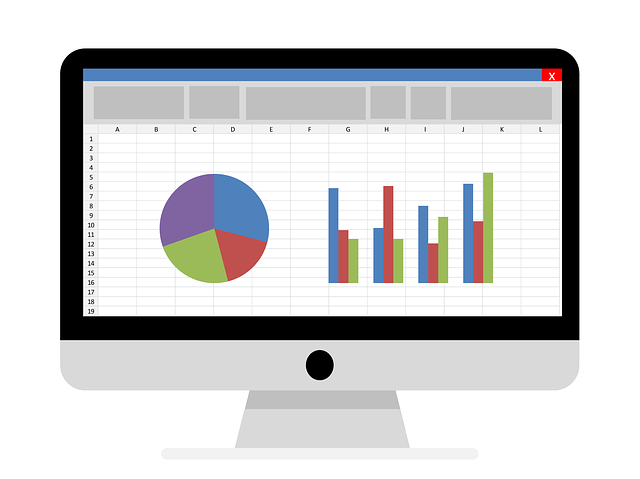Financial planning is crucial for South Africans aiming for a secure future. It involves assessing income, expenses, and savings options, setting SMART goals, budgeting effectively, and investing strategically. A comprehensive Financial Planning Checklist should include evaluating current finances, automating savings, exploring investments, and preparing for unforeseen events. Regularly reviewing and adjusting your strategy ensures adaptability, enables seizing opportunities, and fosters control over your financial destiny in South Africa's dynamic economy.
In today’s economic climate, effective financial planning and budgeting is more crucial than ever for South Africans. This comprehensive guide offers a step-by-step approach to achieving financial security. From understanding the basics of financial planning to creating a tailored financial planning checklist for South Africa, we cover all aspects. Learn how to assess your current situation, set realistic goals, craft detailed budgets, implement saving strategies, and regularly review and adjust your plan for long-term success.
- Understanding Financial Planning: A Comprehensive Guide for South Africans
- Assessing Your Current Financial Situation: The First Step Towards Security
- Setting Realistic Financial Goals: Building a Solid Foundation
- Creating a Detailed Budget: Tracking Every Rand with Ease
- Implementing Effective Saving Strategies: Maximizing Your Rewards
- Regularly Review and Adjust: Staying on Course for Long-Term Success
Understanding Financial Planning: A Comprehensive Guide for South Africans

Financial planning is a crucial aspect of life in South Africa, where managing resources effectively can mean the difference between securing a comfortable future and facing financial strain. It’s a comprehensive process that involves assessing your current financial situation, setting goals, creating a budget, and making strategic investments. For many South Africans, navigating the complex financial landscape requires a structured approach to ensure long-term stability.
A Financial Planning Checklist for South Africans should encompass several key elements: evaluating income and expenses, understanding savings options, exploring investment opportunities, and planning for unexpected events. By regularly reviewing and adjusting your financial strategy, you can adapt to changing circumstances, take advantage of new opportunities, and work towards achieving your life goals. This checklist serves as a guide to help individuals take control of their financial destiny.
Assessing Your Current Financial Situation: The First Step Towards Security

Assessing your current financial situation is the foundational step in any financial planning checklist for South Africa’s diverse economic landscape. It involves evaluating your income, expenses, debts, and assets to gain a clear picture of where you stand financially. This process empowers you to make informed decisions about your money, enabling you to set realistic short-term and long-term goals.
By meticulously going through your bank statements, receipts, and invoices, you can identify areas where you’re overspending or have unnecessary debt. It’s also an opportunity to uncover hidden costs that might be eating into your budget. Once you understand these dynamics, you can start making adjustments to align your finances with your aspirations. This proactive approach is key to achieving financial security and building a robust foundation for the future.
Setting Realistic Financial Goals: Building a Solid Foundation

Setting realistic financial goals is a crucial step in your financial planning checklist South Africa and building a solid foundation for your future. It’s essential to define achievable objectives that align with your aspirations, whether it’s saving for a home, investing in education, or planning for retirement. Start by evaluating your current financial situation: assess your income, expenses, and existing debts. This will help you understand your starting point and set goals that are tailored to your unique circumstances.
Remember, realistic goals should be specific, measurable, achievable, relevant, and time-bound (SMART). For instance, instead of aiming to “save more money,” try setting a target like “save R10,000 for a down payment on a car within the next 12 months.” This approach provides clarity and makes it easier to track your progress. Regularly review and adjust your goals as needed, ensuring they remain relevant and motivating throughout your financial journey.
Creating a Detailed Budget: Tracking Every Rand with Ease

In the journey towards achieving financial stability and security, creating a detailed budget is a crucial step in any Financial Planning Checklist for South Africans. It’s an essential tool that allows individuals to gain control over their finances by tracking every rand spent. By meticulously categorising expenses and allocating funds accordingly, one can easily identify areas where they may be overspending. This process empowers people to make informed decisions about their money, enabling them to save more, invest wisely, and reduce debt.
A well-crafted budget provides a clear roadmap for managing finances effectively. It allows individuals to set realistic financial goals and work towards achieving them. Whether it’s saving for a rainy day, planning a vacation, or investing in education, a detailed budget ensures that every aspect of your financial life is accounted for. With easy tracking, South Africans can stay on top of their spending, make adjustments when needed, and ultimately build a secure financial future.
Implementing Effective Saving Strategies: Maximizing Your Rewards

In the journey towards financial stability, implementing effective saving strategies is a key aspect of sound financial planning in South Africa. A comprehensive Financial Planning Checklist for SA residents should include methods to maximise savings and, consequently, rewards. One powerful approach is to automate your savings by setting up regular transfers from your salary or income directly into dedicated savings accounts. This ensures consistent progress towards your goals without the need for constant reminders or discipline.
Additionally, considering different types of savings vehicles can help you capitalise on attractive interest rates and rewards offered by various financial institutions. Whether it’s a high-interest savings account, investment funds with incentives, or tax-efficient savings plans, exploring these options can significantly enhance your returns over time. Remember, effective saving is not just about putting money aside; it’s about strategically positioning your funds to grow and reward you in line with your financial aspirations.
Regularly Review and Adjust: Staying on Course for Long-Term Success

Regularly reviewing and adjusting your financial planning is crucial for achieving long-term success in South Africa. It’s like navigating a labyrinth—you can’t afford to stop and get lost along the way. A robust financial planning checklist should be your compass, guiding you through life’s twists and turns. By setting clear goals, tracking expenses, and reassessing regularly, you can make informed decisions that align with your aspirations.
In a dynamic environment where economic landscapes shift, staying on course demands adaptability. Your initial financial plan might not remain relevant over time, especially as your circumstances evolve. Embrace the flexibility to adjust allocations, re-evaluate investment strategies, and incorporate new goals into your financial planning checklist. This proactive approach ensures that you’re always moving forward—one step closer to securing your financial future in South Africa.
Financial planning is a journey, not a destination. By understanding your financial situation, setting realistic goals, creating a detailed budget, and implementing effective saving strategies, you’re well on your way to securing your future in South Africa. Remember, regular reviews and adjustments are key to staying on course for long-term success. Use this Financial Planning Checklist as a guide to take control of your finances and embrace the financial freedom that lies ahead.







